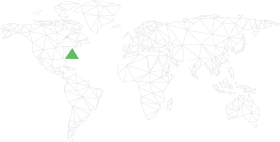AI in Manufacturing – From Automation to Enhanced Production
![]() by Team Assurety
by Team Assurety
Published on Sept 11, 2024
5 min read
Unveiling the Future
Part 09 of a ten-part series on Leveraging AI to solve complex business problems.
As part of our commitment to keeping you informed on the latest advancements in AI technology, we’re excited to share our article in the AI Insights series.
Introduction
Manufacturing companies face many challenges; from lack of skilled workforce, consumerism trends to inventory and project management. Globalization of business has presented a different set of challenges with increasing overheads and lack of automation in supply chains and sourcing of raw materials. In this article we will explain how Artificial Intelligence (AI) can help get ahead of these challenges.
Automation and robotics are not new to the manufacturing industry, since 1980s manual processes were automated to enhance production numbers, save wastage and time. However, this automation or early evolution of AI was for cyclic tasks such as assembling products or parts, sorting and moving commodities. Algorithms that enabled these machines to do advanced calculations, precise movements were introduced in 1990s where some basic decision making was used by robotic control systems. With time production methods became robust with AI led monitoring and quality checks.
These days continuous improvements are being made to manufacturing lines, with the help of AI and robotics, advanced sensors relaying valuable data has helped in enhanced productivity with quality and reduced workforce. Application of Artificial General Intelligence (AGI) has enabled limited decision-making capabilities in robots mimicking humans, further development in this area will transform the industry more rapidly.
Production processes have drastically improved by leveraging Machine learning algorithms, insights from data sourced from AI-enabled robots, cognitive systems like vision, infrared and other sensors. This allows surgical precision in quality control and reduce operational costs.
Remember hearing, robots will take your jobs, well in manufacturing robots have been eliminating manual jobs since 1980s and have enabled human resources to be utilized on more core business functions. With more sophisticated algorithms, increased speed and precision, less human involvement is required. A car assembly line is a great example; robots without breaking a sweat can assemble car parts in less time, with high precision and pin point accuracy, minimizing costs and producing more. Manufacturers face less downtime as sensors quickly identify the issues with a certain part or a machinery.
Safety and Regulations
Manufacturing companies are increasingly using AI to identify possible hazard, prevent injuries and monitor compliance in factories helping in adhering to regulations.

This AI piece may initially be small but may take center stage later. This alignment needs the involvement of Key Stakeholders who can identify certain priority use cases, determine ethical components, applicability, and feasibility, agree on a roadmap, and identify success criteria.
Predictive Maintenance
Condition based monitoring to identify failures preemptively has been a game changer for manufacturing industry. Unplanned stoppages, downtimes, replacement and repairs are avoided using predictive maintenance techniques on top of data generated by sensors with AI and automated decision making systems generating timely results.
Supply Chain Optimization
With globalization, change in distribution and transportation of goods; supply chain processes are more complex than ever before. AI helps in reducing costs related to inventory, transportation, stock management and generating reliable leads. Ai enabled inventory and stock levels help in effective communication amongst all stakeholders such as partners, suppliers and customers.
Enhanced Production Planning
The manufacturing industry is always faced with the vital question of when to produce? How much to produce, and how can production be optimized. AI helps with forecasting and recognizing demand trends helping in reduced wastage. Better production plans mean less load on resources, less cost and optimized stock levels throughout the year.
Optimized Production Planning
By leveraging ML algorithms, manufacturers can create production plans tuned for specific customer needs while reducing costs associated with unnecessary changes due to changing market conditions or customer demands at different times throughout the year. ML models also help improve forecasting accuracy by collecting data from past cycles and analyzing it for patterns and trends. It then applies these findings when creating new plans for future production cycles, allowing businesses to reduce wastage while increasing overall productivity levels over time.
Enhance Your Manufacturing with AI by Assurety Consulting & Solutions Inc.
- Custom AI Solutions: Tailored to optimize your production processes and improve efficiency.
- Predictive Maintenance: Reduce downtime with AI-driven maintenance strategies.
- Supply Chain Optimization: Streamline your operations with advanced AI insights.
Some examples of AI in action
Semiconductor companies face a long cycle of production composed of many phases, after every phase quality is assessed. Production stopped due to a failure can result in a disaster, using AI’s ability to process large data sets design flaws are identified and corrected before any delays saving the semi-conductor manufacturing industry a $100 billion annually.

In steel fabrication industry using AI to detect faults using advance image sensors helps ensure quality standards and reduce wastage. AI also plays a role in producing predictive analysis in renewable energy industry as advance algorithms adjust their yield based on weather conditions, past performance and consumption.
The future of Manufacturing Industry and AI
The business and use of AI will increase significantly in the next few years. It is estimated that by 2028 its worth would be USD 17 billion, an increase of more than 300% from 2022. Robots equipped with AI will perform many repeatable tasks in future; whether it is an assembly line or a production cycle. Manufacturing industry around the world must benefit from the advancements and new innovations in AI to remain competitive. The agility and flexibility required to keep a future business viable and extremely efficient is only offered by AI.
Upcoming in the series
Part 10: AI Meets Training: The Future of Software Training for Commercial Mailers
